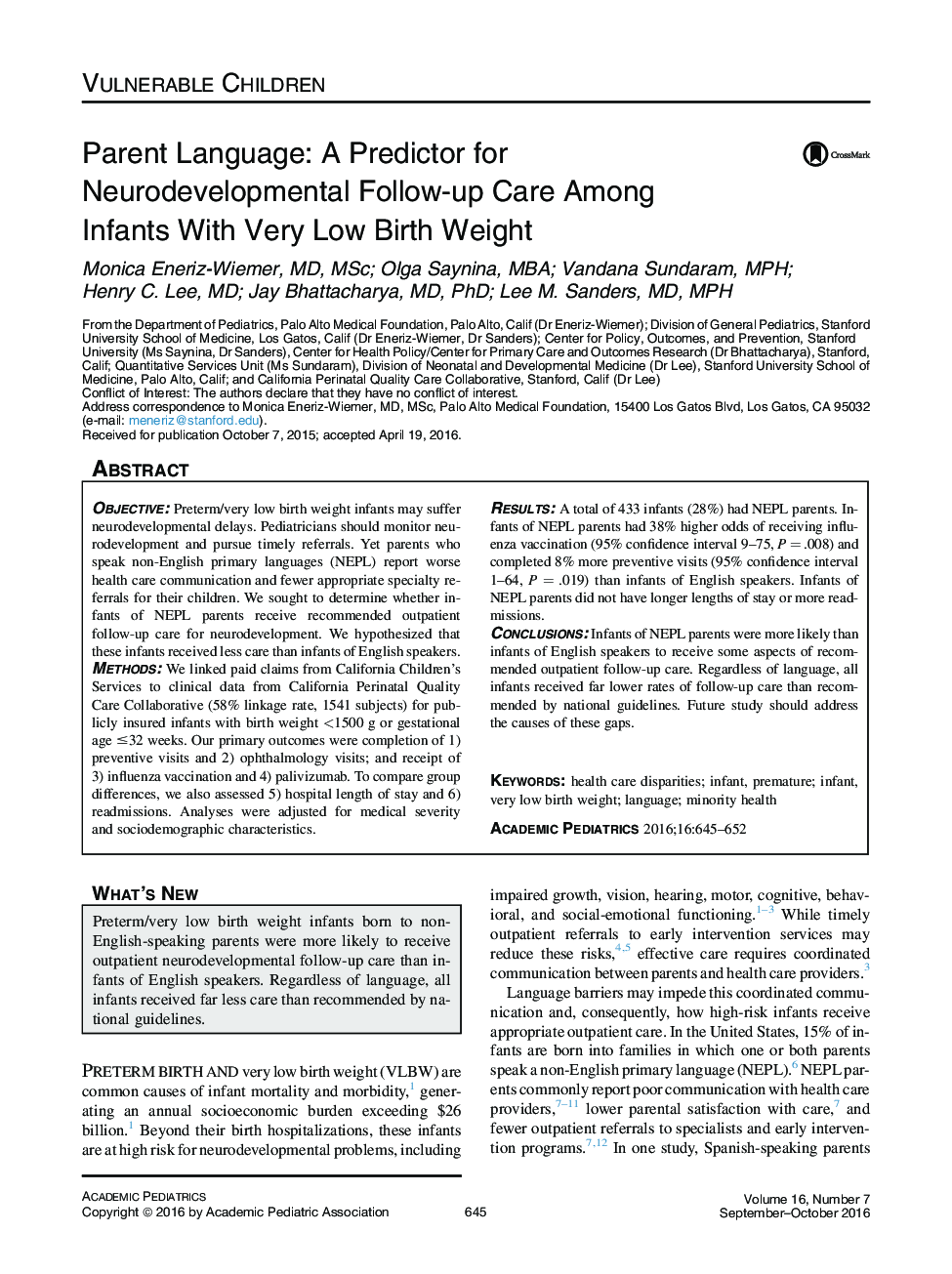| Article ID | Journal | Published Year | Pages | File Type |
|---|---|---|---|---|
| 4138842 | Academic Pediatrics | 2016 | 8 Pages |
ObjectivePreterm/very low birth weight infants may suffer neurodevelopmental delays. Pediatricians should monitor neurodevelopment and pursue timely referrals. Yet parents who speak non-English primary languages (NEPL) report worse health care communication and fewer appropriate specialty referrals for their children. We sought to determine whether infants of NEPL parents receive recommended outpatient follow-up care for neurodevelopment. We hypothesized that these infants received less care than infants of English speakers.MethodsWe linked paid claims from California Children's Services to clinical data from California Perinatal Quality Care Collaborative (58% linkage rate, 1541 subjects) for publicly insured infants with birth weight <1500 g or gestational age ≤32 weeks. Our primary outcomes were completion of 1) preventive visits and 2) ophthalmology visits; and receipt of 3) influenza vaccination and 4) palivizumab. To compare group differences, we also assessed 5) hospital length of stay and 6) readmissions. Analyses were adjusted for medical severity and sociodemographic characteristics.ResultsA total of 433 infants (28%) had NEPL parents. Infants of NEPL parents had 38% higher odds of receiving influenza vaccination (95% confidence interval 9–75, P = .008) and completed 8% more preventive visits (95% confidence interval 1–64, P = .019) than infants of English speakers. Infants of NEPL parents did not have longer lengths of stay or more readmissions.ConclusionsInfants of NEPL parents were more likely than infants of English speakers to receive some aspects of recommended outpatient follow-up care. Regardless of language, all infants received far lower rates of follow-up care than recommended by national guidelines. Future study should address the causes of these gaps.
